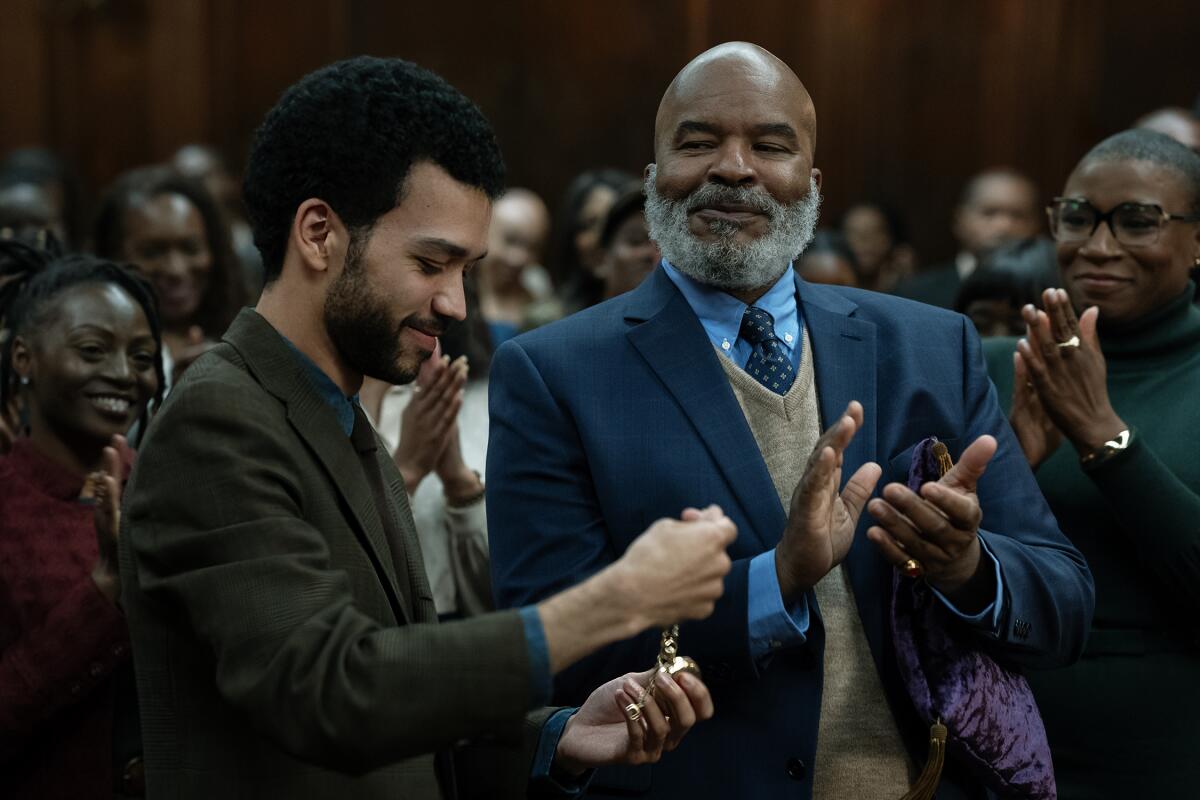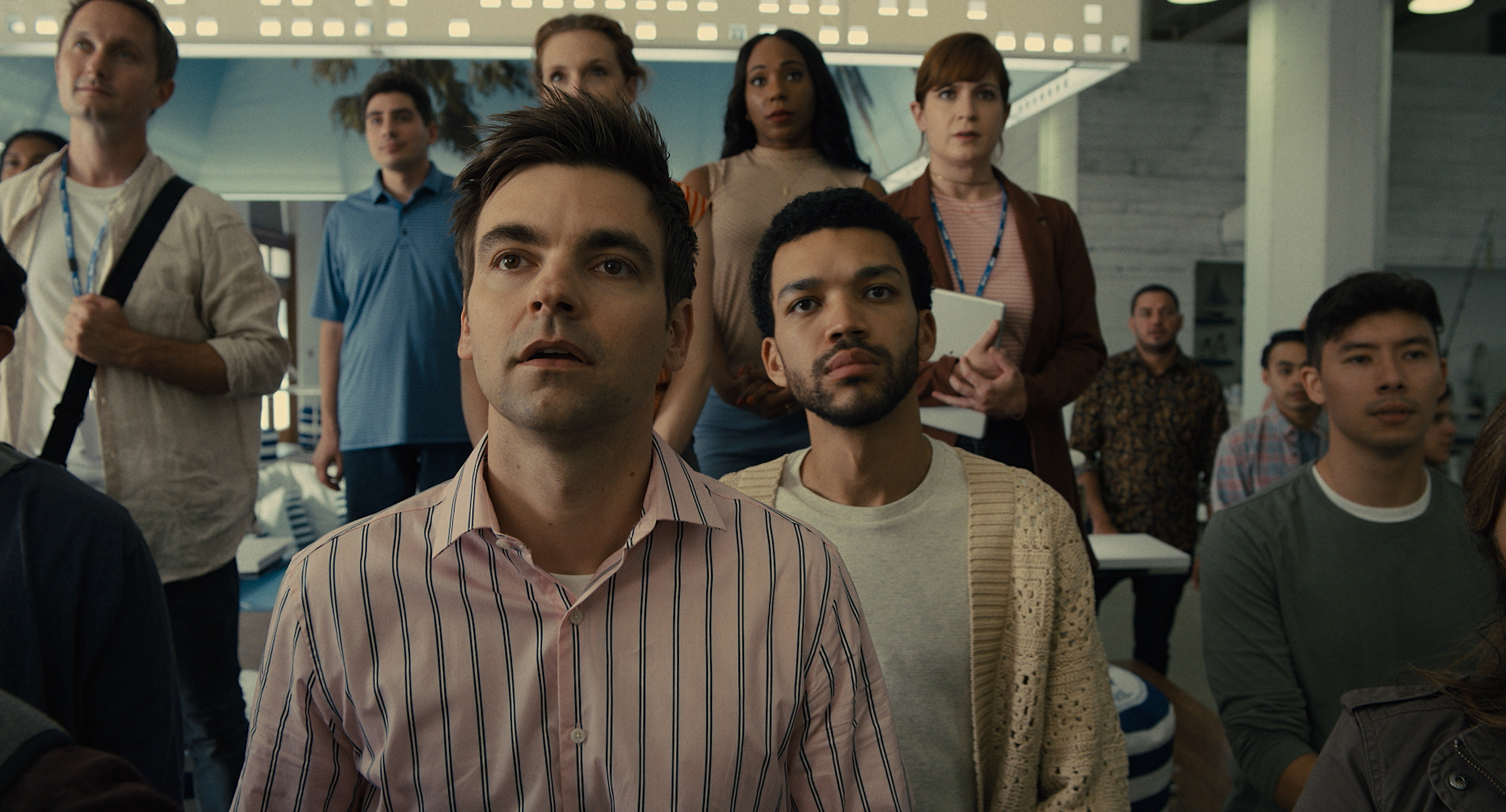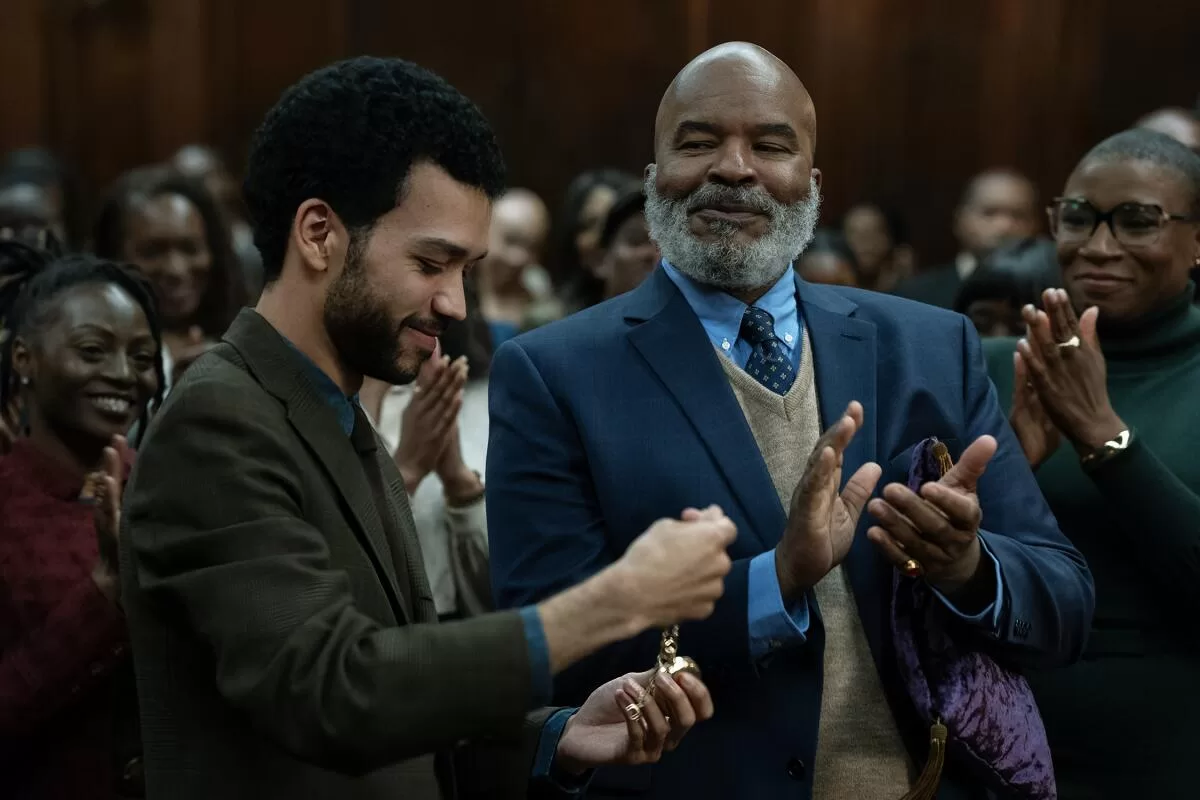
'The American Society of Magical Negroes' is too timid to land any satirical blows
Carlos AguilarMarch 15, 2024
As provocatively titled as it is, The
American
Society of Magical Negroes, the first feature from actor turned writer-director Kobi Libii, is neither the regressive atrocity that early online commentators fear
edreactionsmay haveassumed
nor the hard-hitting satire of systemic racism it may have intended to be. Libiis debut lacks the potency of Boots Rileys off-the-rails Sorry to Bother You, Jordan Peeles chilling Get Out or Spike Lees underappreciated Bamboozled, movies that observed the Black experience
in this country
with a blistering and often blisteringly funny perspective.
The central trope refers to Black movie characters whose sole purpose in a narrative is to aid the white protagonist in his pursuits
(think Michael Clarke Duncan’s gentle convict in
)
. These magical individuals are presented here as
collectivized into
a secret organization
where whose
members gain supernatural abilities. Their mission?
tasked with diluting themselves in order to appease
Appeasing the white majority
and make Black people palatable
not because they endorse
the
such backward
s
thinking, but as a survival mechanism. From coddling mediocrity to solving mar
it
al issues, all
of
their efforts aim to prevent impending violence.
It’s the apologetic deference that
Aren (Justice Smith), a young
Black
artist in Los Angeles,
exhibits an apologetic deference
toward
s
white people,
(
making himself small, never taking up space
)
that exactly what
attracts Roger (David Alan Grier), an older
, Nick Fury-like
associate of the
s S
ociety, to recruit him. Libii spends what feels like considerable time going over the mechanics of the underground operation.
These s S
equences inside the headquarters (accessed through a barbershop) visually call to mind the halls of Hogwarts in the Harry Potter franchise
, with
: walls covered with photos of early members and antique decor to drive home its status as a long-standing institution.
One clever
motif invention
is the white tears meter, a floating dial that those in the
s S
ociety see when a white person is in distress. In infantilizing white people as entities oblivious to their own privilege and the trauma they inflict on
otherstheir Black counterparts
, Libii makes one of his most successful statements, evincing the power dynamics at play in every aspect of quotidian life and, by way of absurdism, putting the responsibility
back
on white America.

After learning the ropes, A
rens assigned client the white person he must support
is revealed to him.
Jason (Drew Tarver)
,
is an average
white
guy working at a clich
d tech company. Their friendship moves along smoothly until Arens romantic ambitions with their co-worker Lizzie (An-Li Bogan), in whom Jason is also interested, threaten not only his mission but the entire
s S
ociety (if one of them goes off
–
script, they all lose their powers).
Smith has a knack for playing characters ridden with anxiety (he does so
as well
in a far
better film, I Saw the TV Glow,
out comingin this
May)
,
and that meek
,, yet but
boiling-under-the-surface persona works
for in
a handful of chuckle-worthy instances
here
as
ashis character Aren
struggles with the rules of his new high-stakes job.
Unfortunately, Libii
leans too muchexplains more than he exemplifies situationally, as he relies
on dialogue-heavy exchanges to illustrate
histhe
concepts.
Halfway through, Aren recalls the case of a white man shocked after being robbed, pointing out that for those for whom the world operates as it should, the default mode is expecting other peoples good intentions, a luxury Black people dont have. In another scene the hero challenges the perception Jason has that whatever hes accomplished can only be traced back to his talent and not to outside factors, like the advantage that being white gives him. But w W
hile pertinent, the
se
spelled-out articulations ring like segments from a lecture crammed into the crevices of
the an
overstuffed plot.
An idea stretched out beyond what it can hold as currently devised, l
Like a comedy sketch that overstays its welcome,
long after it has anything left to say
Society undermines both its caustic
satirical
intent and
the its
romantic
–
comedy subplot. Its not that the two are inherently incompatible; in fact, one can see that Libii introduced the latter to allow Aren to experience being seen beyond stereotypes
. B
ut
the two modes dont congeal because
theres not enough time for the amorous liaison to develop into something that feels more than
just
a schematic add-on.
The movies predictably speechified resolution, with Aren
quite
literally taking the stage to speak his truth, finally renders the sociopolitical critique mild and inconsequential, a disappointing outcome for a premise
with that had
the potential to be
come
truly incendiary.
</article>
